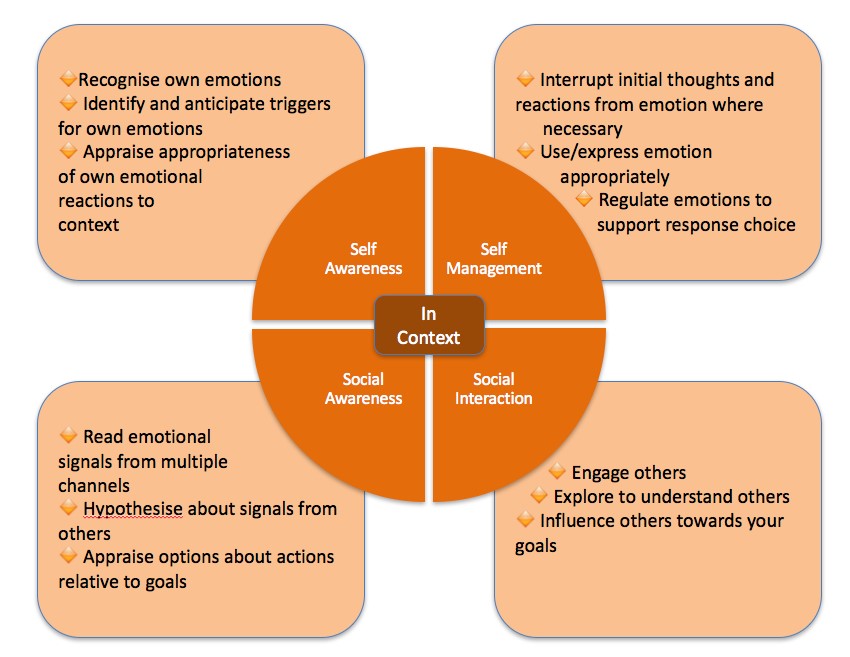What’s the advantage in being an Emotionally Intelligent leader?
Robert Isaac, Director of People Development, sets out the benefits of emotional intelligence
UK plc is currently going through a period of great uncertainty. Traditional leadership styles such as Command and Control are increasingly viewed as out dated in the modern workplace. Today’s employees want to work for organisations with leaders who demonstrate high levels of emotional intelligence (EI). Employees want to feel valued, listened to, and be part of a team that has a common purpose in delivering a great service, product, or experience.
Behavioural psychologists refer to this as social reinforcement. Social reinforcement is every bit as powerful as money. Adulation, praise, or affection are essential in motivating people to excel in their roles. What is more, social reinforcement increases our interest in the work we do because it gets imbued with social significance. These experiences, and fair financial reward, are what makes people want to return to their place of work day after day, even after the age of retirement
Today we can see many examples where leaders with exceptional levels of emotional intelligence have motivated an otherwise talented but emotionally disconnected group of employees to perform to extraordinary heights, for example, Gareth Southgate the current England Football Manager.
Inclusive leadership is not about being soft, meek, or weak. It’s about being smart. For example, knowing how and when to listen to those at the customer-facing end of the business. Involving them in simplifying processes, finding out what motivates them, and showing common respect for all. Leaders with a high level of emotional intelligence also know how and when to compromise to achieve the best outcome for all.
We can trace EI back to Confucius the Chinese philosopher 551 BC – 479 BC.
“Tell me and I forget, teach me and I may remember, involve me and I learn.”
Emotional intelligence is the ability to recognise, understand, and positively manage your own emotions, which inevitably leads to understanding others.
At 4i Solutions we have seen increased demand from our clients wanting to know how their managers can motivate and engage employees to work smarter and deliver greater productivity with existing resources.
The Emotional Intelligence Academy model below is an excellent example of the four key areas on which to focus.

The good news is that Emotional Intelligence can be developed. Here are six things that you can start doing now to help develop your emotional intelligence.

At 4i Solutions, we do some telling, some teaching, but most importantly we support you through your journey to becoming an even better leader!
If you would like to know more about the benefits of emotional intelligence, then please feel free to get in touch.
References: Psychology Today, Emotional Intelligence Academy, Robert Tearle







